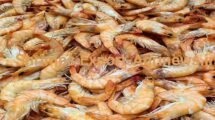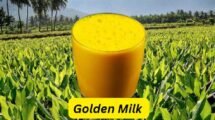Cattle dung is more valuable than the fodder consumed by cattle: NSO report
The gross value of output (GVO) of cattle dung, estimated at ₹34,825.75 crore, is greater than the total value of fodder consumed by the cattle population. There are 128 other commodities whose value is lower than dung, including maize, mustard, onion, potato, eggs, soyabean, tea, coffee, and cashew nuts.
According to the National Statistical Office’s (NSO) recent report, ‘Value of Output From Agriculture, Forestry, and Fishing,’ the GVO of dung climbed 6.8 percent to ₹34,825.75 crore in 2019-20 from ₹32,598.91 crore in 2011-12.
Also Read | NDDB-MRIDA launched dung slurry manure management across country
The rate of increase is slower than in the previous seven-year phase because to a two-year decline in value between 2019-20 and 2011-12. Dung GVO grew 17% to ₹18,797.75 crore in 2010-11 from ₹16,050.86 crore in 2004-05.
In comparison, the GVO of fodder increased just a little, from ₹32,494.46 crore in 2011-12 to ₹32,626.09 crore in 2019-20. After fodder costs doubled this year, farmers in many northern states, including Uttar Pradesh and Rajasthan, faced a tough battle to feed their cattle.
‘When prices of a commodity have been suppressed for a long period, they tend to climb unexpectedly, as has happened with fodder this time,’ said Akash Bahuguna of Kanpur, who tracks local commodity prices.
‘Paints’ with dung
Experts predict that the value of dung will climb further as a result of initiatives such as the Khadi and Village Industries Commission (KVIC) producing paint from it. KVIC launched the ‘Khadi Prakritik’ paint in January 2021, with cow dung as the major ingredient.
The agency paid ₹5/kg for the dung, which is the same sum a farmer makes from selling ‘upla,’ a dried and round-shaped cake made of dung. However, KVIC plans to pay ₹10/kg when demand for the paints increases. The Chhattisgarh government purchases dung at ₹2/kg under the ‘Godhan Nyay Yojana.’ Even Prime Minister Narendra Modi addressed the effort being done to generate bio-CNG from cow dung during a meeting at a farmer summit on October 17.
Also Read | Cow-based economy, IIM-A suggests stray cow face recognition technology
Estimates of dung output
The estimations of dung output are based on the population and evacuation rates of the bovine population. The evacuation rates and population estimates are based on the Department of Animal Husbandry and Dairy’s Integrated Sample Survey (ISS).
To arrive at dung production estimates for states that do not have estimates, NSO used rates from neighboring states as well as the annual estimated animal population.
The value of goat and sheep evacuation/droplets was calculated using the findings of a 2013 study conducted by the Central Institute for Research on Goats and the National Centre for Agricultural Economics and Policy Research.
The discharge rate for goats is 0.3 kg per day and 0.8 kg per day for sheep. The value of droplets is evaluated using dung pricing and grouped with dung estimates.
Population of cattle
According to the 20th Livestock Census (2019), the total Bovine population (cattle, buffalo, mithun, and yak) was 30.38 crore (cattle population was 19.35 crore and buffalo population was 10.99 crore), up 1.3% from the previous census in 2012. Over the previous census, the sheep population increased by 14% to 7.43 crore, while the goat population increased by 10% to 14.89 crore.
Rajasthan is the leading state in dung production, with a GVO of ₹10,041 crore in 2019-20, however, this is lower than the previous year’s record of ₹10,761 crore. Rajasthan’s dung GVO growth rate of 7.2% since 2011-12 is slightly greater than the pan-India growth rate.
Also Read | Class 10 dropout is now Organic farming adviser to Agri universities & ICAR’s curriculum committee
On the other hand, Tamil Nadu has experienced a nearly 50% increase in nine years, from ₹1,239.98 crore to ₹1,846.76 crore. In terms of the value of dung produced, Bihar and Jharkhand have also shown tremendous growth of 40% and 32%, respectively.


















Add Comment